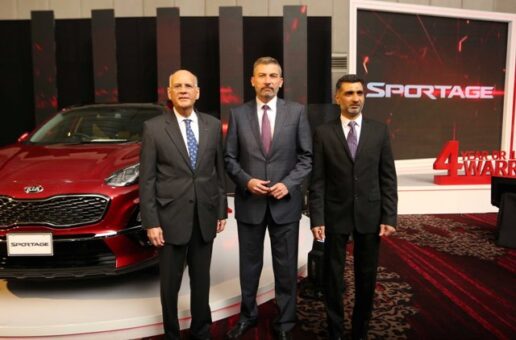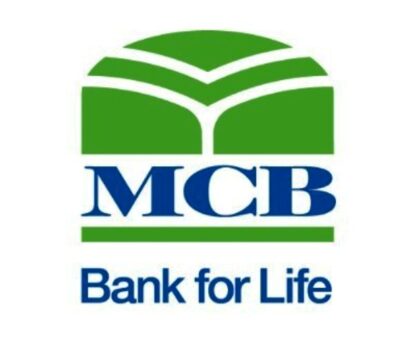ISLAMABAD: Federal Board of Revenue (FBR) on Wednesday promoted 57 officials including superintends, inspectors, intelligence officers of customs department to the post of Superintendent (BS-16) and notified their transfer and postings with immediate effect and until further orders.
Following officers have been promoted and posted to new places:
01. Atique Ahmed Deputy Superintendent posted at the same place Regional Tax Office (RTO) III Karachi.
02. Asad Mirza, Deputy Superintendent posted to Model Customs Collectorate (Preventive) Quetta from MCC Appraisement Quetta.
03. Nawabzada Javed Haider, Inspector posted to Directorate of Transit Trade, Karachi from MCC Hyderabad.
04. Shuja Salam, inspector posted to Directorate of Transit Trade, Karachi from MCC Hyderabad.
05. Saudal Hasan, Inspector posted to Directorate of Transit Trade, Quetta from MCC Hyderabad.
06. Ghulam Muhammad, intelligence officer posted to Intelligence and Investigation, FBR, Hyderabad from Intelligence and Investigation, FBR Karachi.
07. Younis Ata, inspector posted to same place MCC Preventive Quetta.
08. Ehtasham-ul-Haq, inspector posted to same place MCC Faisalabad.
09. Saleem Shah, Inspector posted to same place MCC Preventive Quetta.
10. Tariq Sultan, inspector posted to MCC Preventive Quetta from MCC Appraisement Quetta.
11. Arshad Zubair, inspector posted to MCC Preventive Quetta from MCC Appraisement Quetta.
12. Muhammad Asif Zaman, Inspector posted to same place MCC Preventive Quetta.
13. Faisal Siddique, Inspector posted to MCC Preventive Quetta from MCC Appraisement Quetta.
14. Maqsood Ahmed Jafri, inspector posted to same place Corporate RTO Karachi.
15. Habib-ur-Rehman, Inspector posted to same place RTO III Karachi.
16. Malik Muhammad Aslam, Inspector posted to same place Large Taxpayers Unit (LTU), Lahore.
17. Riasat Ali Javed, inspector posted to same place MCC Preventive Lahore.
18. Younus Qadri, intelligence officer posted to same place Intelligence and Investigation Lahore.
19. Muhammad Ashraf Bhatti, inspector posted to same place CRTO Lahore.
20. Malik Muhammad Ashraf, Inspector posted to same place MCC Preventive Karachi.
21. Tariq Mehmood Butt, inspector posted to same place RTO Gujranwala,
22. Naveed Ijaz Bajwa, inspector posted to MCC Preventive Lahore from MCC Sialkot.
23. Muhamamd Aslam, Inspector, posted to MCC Preventive Peshawar from MCC Appraisement Peshawar.
24. Zahid Habib Ansari, Inspector posted to same place MCC Faisalabad.
25. Mir Zaman, inspector posted MCC Preventive Peshawar from MCC Appraisement Peshawar.
26. Syed Muhamamd Ali, inspector posted to same place MCC Appraisement Lahore.
27. Muhammad Aslam Makhdoom, inspector posted MCC Preventive Quetta from MCC Appraisement Quetta.
28. Irfan Mumtaz, Inspector posted to same place MCC Faisalabad.
29. Mansab Ali Dogar, inspector posted to same place MCC Multan.
30. Mumtaz Ali Nizamani, inspector posted to same place RTO-III Karachi.
31. Masood Sadiq Tarar, inspector posted to same place MCC Multan.
32. Sadaqatum Nazar Ali, inspector posted to MCC Preventive Lahore from MCC Appraisement Lahore.
33. Muhammad Zahid Nadeem, Inspector posted to same place Directorate of Internal Audit (Customs), Lahore.
34. Syed Mahmood Pervez, inspector posted to same place CRTO Lahore.
35. Rai Waqar Ahmad, inspector posted to same place MCC Preventive Lahore.
36. Zafar Ullah Khan Niazi, inspector posted to MCC Preventive Lahore from Internal Audit (Customs) Lahore.
37. Saleem Raza, inspector posted to same place MCC Preventive Lahore.
38. Sohail Iqbal, inspector posted to MCC Preventive Lahore from MCC Appraisement Lahore.
39. Qaiser Ehsan Rao, inspector posted to same place MCC Preventive Lahore.
40. Mazhar Elahi, inspector posted to MCC Preventive Peshawar from MCC Appraisement Peshawar.
41. Seikh Mudassar Ahmad, inspector posted to MCC Preventive Peshawar from MCC Appraisement Peshawar.
42. Rai Khalid Javed, inspector posted to same pace MCC Multan.
43. Tariq Hussain Bhutto, inspector posted to Directorate of Transit Trade Quetta from MCC Hyderabad.
44. Shahid Naseem Joiya posted to MCC Preventive Lahore from Directorate of IPR Enforcement (Central) Lahore.
45. Ibrar Hussain, Inspector posted to same place MCC Preventive Lahore.
46. Ashfaq Ahmad, inspector posted to same place MCC Multan.
47. Mirza Iqbal Hussain, inspector posted to same place MCC Preventive Lahore.
48. Muhammad Saeed, inspector posted to same place MCC Preventive Lahore.
49. Muhammad Mahmood Anwar, inspector posted to same place MCC Preventive Lahore.
50. Abdul Qayyum, inspector posted to same place MCC Preventive Peshawar.
51. Babar Rehman, inspector posted to same place MCC Multan.
52. Naseem Mahmood Cheema, inspector, posted to same place MCC Preventive Lahore.
53. Malik Sher Afzal, inspector posted to same place MCC Gilgit Baltistan.
54. Syed Shahid Abbas, inspector posted to same place MCC Appraisement Lahore.
55. Haleem Ullah, inspector posted to Intelligence and Investigation, FBR, Islamabad from MCC Gilgit Baltistan.
56. Khawaja Hur Abbas, inspector posted to same place MCC Preventive Lahore.
57. Anjum Sheraz, Inspector posted to MCC Multan from MCC Appraisement Lahore.
FBR said that the promotions of above mentioned officials would take effect from the date of their joining / charge assumption, subject to the condition that no disciplinary proceedings were pending against them.
They will be on probation for a period of one year, extendable for further period, not exceeding one year, provided that if no order is issued by the day following the termination of probationary period, the appointment shall deem to be held until further order.
Related Posts
FBR notifies promotions of customs officers into BS-20








